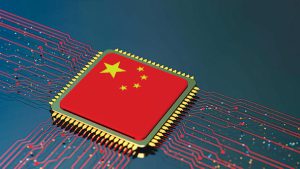Bloomberg
The US is “not in the business†of aiding rival chip-producing countries, Ambassador to Japan Rahm Emanuel said, as the White House steps up efforts to deny China access to American technology.
“It’s one thing if you’re going to have competition,†Emanuel said in an interview with Bloomberg Television. “The other thing is if you actually help the competitor compete,†he added. “We’re not in the business of funding and supporting and doing the hard work and research to fund you to compete against us.â€
His comments came after the Biden administration included dozens of Chinese technology companies on a so-called Entity List, making it almost impossible for them to procure critical foreign components and ratcheting up a trade conflict between the world’s two largest economies.
A spokesman for China’s embassy in Washington called the move a “reckless suppression†of Chinese enterprises.
Over the past two months, the US has taken its strongest steps yet to prevent China from buying or making leading-edge semiconductors — crucial for the Asian nation to leapfrog the US in areas such as artificial intelligence and supercomputing. Key US allies, including the Netherlands and Japan, are planning to adopt at least some of the new US rules as well, Bloomberg News reported.
Emanuel said the US and Japanese efforts on semiconductors are complementary. He also lauded Japan’s announcement of a new security strategy, in which it laid out plans for a substantial hike in defense spending, and defined China as an “unprecedented†strategic challenge.
“If Japan wasn’t doing this, you would be asking me what’s taking Japan so long?†Emanuel said of the new defense policy, citing threats from North Korea as well. “Just think about what they are facing today and what the United States as the principle ally of Japan is facing.â€
Taiwan Semiconductor Manufacturing Co Chief Executive Officer CC Wei separately warned of the dangers of excessive government export controls, saying they erode mutual trust between governments. The prolific chipmaker is now building plants in Arizona and Japan amid growing concerns from customers and major governments that the world’s chip production is too centralised in Taiwan.
“Export controls and banning products from other foreign countries destroy productivity and efficiency gained under globalisation, or at least they reduce benefits offered by a free market,†Wei said.
Apple suppliers accelerate hubs outside China
Bloomberg
India and Vietnam are emerging as Apple Inc’s next manufacturing hubs as assembly partners seek to add resilience to a supply chain heavily centered on China and shaken by its geopolitical and health challenges.
Key electronics manufacturers are moving faster to diversify their capacity globally, taking advantage of local incentive policies, according to Counterpoint Research analysts Ivan Lam and Shenghao Bai. China has seen its workforce shrinking since 2020, according to World Bank data.
 The Gulf Time Newspaper One of the finest business newspapers in the UAE brought to you by our professional writers and editors.
The Gulf Time Newspaper One of the finest business newspapers in the UAE brought to you by our professional writers and editors.
